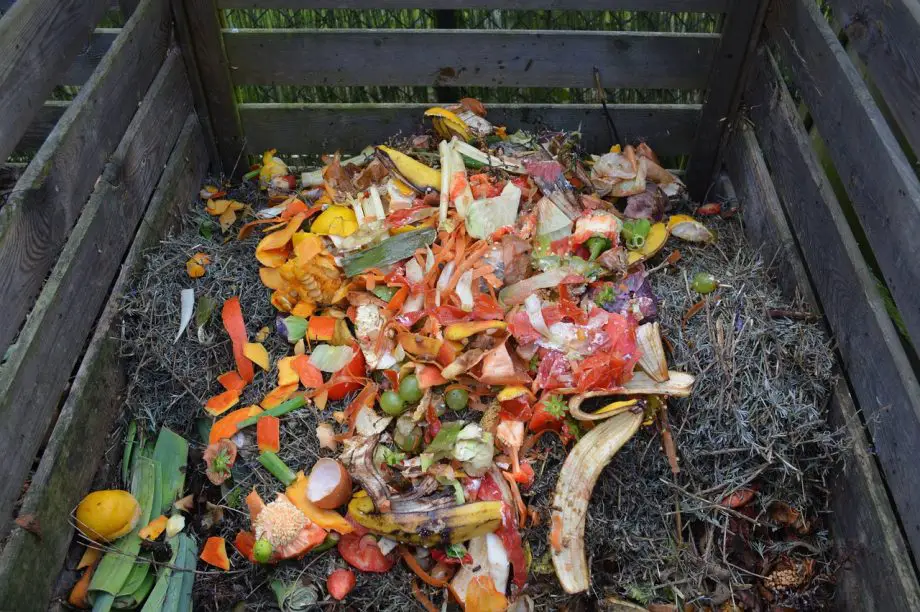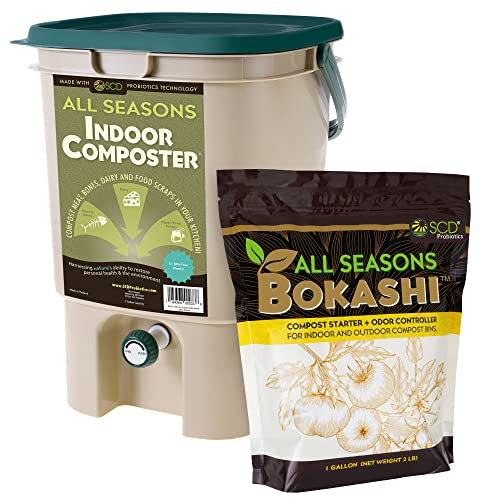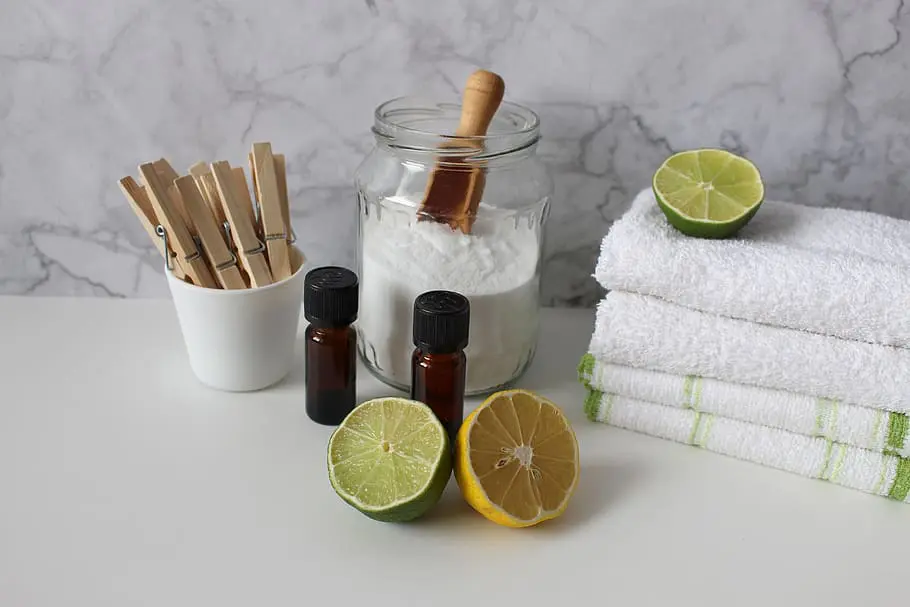
Discover the secrets of DIY composting for small apartments and transform your waste into rich, nourishing soil. Start your sustainable journey today!
Welcome to the world of DIY composting for small apartments, where sustainability meets practicality in the cozy confines of your living space!
Are you ready to embark on an exciting journey of transforming kitchen scraps and organic waste into nutrient-rich soil?
Whether you’re a green thumb enthusiast or just beginning your eco-friendly endeavors, this guide will equip you with all the tips and tricks you need to successfully compost in the limited space of your apartment.
Get ready to unleash your inner composting wizard and witness the magic of nature at work right in your very own home!
Let’s dive into the fascinating world of DIY composting for small apartments.
DIY Composting for Small Apartments
Are you eager to make a positive impact on the environment, even with the limited space of your small apartment? Look no further!
In this article, we’re diving into the world of DIY composting specifically tailored for small apartments.
Say goodbye to the guilt of throwing away food scraps and embrace the opportunity to turn them into nutrient-rich compost.
We’ll explore the benefits of composting, discuss different methods suitable for apartment living, guide you through setting up your composting system, and provide tips for maintenance and utilization.
Get ready to unlock the secrets of sustainable living right at your fingertips. Let’s embark on this composting adventure together!
Importance of Composting for Small Apartments
When it comes to small apartments, space is a precious commodity. Every inch counts and waste disposal can become a challenge.
That’s where composting swoops in to save the day! Composting allows you to reduce the amount of organic waste that goes into landfills while simultaneously creating a valuable resource for your plants or community gardens.
Even in the tightest living spaces, you can join the sustainability movement and make a meaningful impact.
Plus, composting helps you develop a deeper connection with nature and fosters a sense of responsibility towards the planet we call home.
Tumbling Composter – Fast-Working – Small and Light Compost Bin for Outdoor or Indoor Use
Benefits of DIY Composting
Now, you might be wondering, “What’s in it for me?” Well, let me tell you about the fantastic benefits of DIY composting!
First and foremost, composting allows you to reduce food waste, which not only helps the environment but also saves you money.
Instead of tossing those leftover fruit peels or vegetable scraps, you can transform them into nutrient-dense compost that nourishes your indoor plants or potted gardens.
Composting also promotes healthier soil, which leads to stronger, more vibrant plant growth.
It’s a win-win situation where you contribute to sustainability and reap the rewards of a greener and lusher living space.
Objective and What You’ll Learn in This Article
In this article, our objective is to guide you through the exciting world of DIY composting for small apartments.
We’ll provide you with practical tips, step-by-step instructions, and valuable insights to help you successfully implement composting in your cozy living space.
From understanding the different composting methods suitable for small apartments to setting up your composting system, maintaining it effectively, and utilizing the rich compost you create, we’ve got you covered.
Our goal is to empower you to embrace sustainable living, reduce your environmental footprint, and experience the joy of nurturing your own mini ecosystem right at home.
So, let’s dive in and unlock the secrets of DIY composting for small apartments together!
Why Composting is Important for Small Apartments
Picture this: you’re in your small apartment, surrounded by limited space and faced with the challenge of waste disposal.
It’s easy to feel overwhelmed, right? Well, don’t worry! Composting comes to the rescue and proves to be a game-changer for small apartments.
Not only does it tackle the issue of limited space, but it also brings a plethora of environmental benefits to the table.
By composting, you can actively reduce food waste and make a positive impact on the planet we call home.
Plus, it’s a fantastic way to embrace sustainable living and contribute to a greener future.
So, let’s delve into the captivating world of why composting is so important for small apartments and discover the multitude of reasons why it’s a step worth taking.
Get ready to unlock the secrets of transforming your apartment into an eco-friendly haven!
Limited Space and Waste Disposal Challenges
Living in a small apartment often means dealing with restricted space, where every square inch matters.
Finding suitable solutions for waste disposal becomes a crucial task.
Traditional methods like having a large compost bin in your backyard might not be feasible. However, don’t let limited space discourage you!
Composting is a versatile and adaptable practice that can be tailored to fit even the smallest of living spaces.
With a bit of creativity and the right techniques, you can conquer the challenge of waste disposal and turn it into a rewarding opportunity.
Environmental Benefits of Composting
Composting is more than just a way to dispose of organic waste. It’s an environmentally friendly approach with numerous benefits.
When you compost, you divert organic materials from ending up in landfills where they release harmful greenhouse gases.
Instead, through the composting process, these materials break down naturally and produce nutrient-rich compost, a valuable resource for your plants.
By reducing waste sent to landfills, composting helps combat climate change, reduce the need for synthetic fertilizers, and protect the Earth’s natural resources.
It’s a simple act that can have a profound positive impact on our environment.
Reducing Food Waste and Promoting Sustainable Living
Food waste is a pressing issue, and composting offers an effective solution.
When you compost your food scraps, you’re diverting them from the trash bin and giving them a new purpose.
By turning those banana peels, coffee grounds, and vegetable scraps into nutrient-rich compost, you’re not only minimizing the amount of waste sent to landfills but also creating a valuable resource that can enrich your soil.
Composting helps close the loop in the cycle of food consumption and waste disposal, transforming what was once discarded into nourishment for future plants and crops.
By composting in your small apartment, you’re actively participating in sustainable living and making a positive impact on the environment.
So, whether you’re looking to make the most of limited space, reduce your environmental footprint, or contribute to a more sustainable world, composting is the answer.
It’s a practical and rewarding way to address waste disposal challenges, unlock environmental benefits, and actively reduce food waste.
By embracing composting in your small apartment, you’re not only transforming organic waste into nutrient-rich compost but also becoming a part of the greater movement toward sustainable living.
Get ready to make a difference, one compost pile at a time!
Getting Started with DIY Composting
Alright, it’s time to roll up our sleeves and dive into the exciting world of DIY composting for small apartments!
Whether you’re a seasoned composter or just starting out, this section will be your guide to getting started on the right foot.
We’ll begin by exploring the basic concept of composting and why it’s the perfect solution for apartment dwellers.
Then, we’ll take a closer look at the different composting methods that are well-suited for small spaces.
From indoor composting to vermicomposting and even bokashi composting, we’ve got options galore!
Each method comes with its own set of pros and cons, so you can choose the one that fits your apartment and lifestyle best.
So, grab your gardening gloves, and let’s embark on this composting adventure together!
It’s time to turn those kitchen scraps into black gold and witness the magic of composting firsthand. Let’s get started!
The Basics of Composting
Let’s start by demystifying the world of composting. At its core, composting is the process of breaking down organic materials into nutrient-rich soil amendment called compost.
It’s like nature’s recycling system, where waste materials like kitchen scraps, yard trimmings, and even paper products are transformed into a valuable resources.
Composting harnesses the power of microorganisms, worms, and other critters to break down organic matter over time.
The end result? A dark, crumbly, and earthy substance that smells like success!
Types of Composting Methods for Small Apartments
Now that we understand the concept of composting, let’s explore different methods that are particularly suitable for small apartments. We have three fantastic options to choose from:
Indoor Composting:
As the name suggests, indoor composting allows you to compost right within the confines of your apartment.
It typically involves using a specialized container or bin to compost kitchen scraps, coffee grounds, and other organic materials.
With proper management of moisture and odor control, indoor composting can be a convenient and effective way to recycle your organic waste.
Countertop Compost Kitchen Counter Bin Indoor Food Composter
An indoor composting bin can be attractive enough to sit on a kitchen counter where it is handy or it can even be placed under a sink.
Vermicomposting:

Get ready to make some roommates of the wriggly variety!
Vermicomposting involves using composting worms, such as red wigglers, to break down your organic waste.
These voracious eaters consume kitchen scraps and produce nutrient-rich castings, also known as worm castings, which are excellent for enriching your soil.
Vermicomposting can be done indoors or on a small balcony, making it a popular choice for apartment dwellers.
This worm bin is really compact and about 16 inches square so it will fit just about anywhere. This is the worm bin I use: Worm Factory 360
Bokashi Composting:
All Seasons Indoor Bokashi Composter Starter Kit
Hailing from Japan, bokashi composting is a fermentation-based method that allows you to compost a wide range of organic materials, including meat and dairy products.
It involves using a special bokashi bran that contains beneficial microorganisms to ferment the waste in an airtight container.
Bokashi composting is compact, odor-free, and ideal for those who want to compost a variety of materials without the need for worms or outdoor space.
Pros and Cons of Each Method
Each composting method has its own unique set of pros and cons to consider:
• Indoor composting provides convenience and doesn’t require any special equipment.
However, it may have limitations in terms of capacity and may require careful management of moisture and odors.
• Vermicomposting is great for small spaces, as the worms can efficiently process organic waste.
It’s a fascinating and educational process, but it may require a bit of maintenance and attention to ensure the worms thrive. It is odor free as a plus and worm castings are a great fertilizer.
• Bokashi composting is excellent for odor control and can handle a wider range of materials.
However, it requires the use of bokashi bran and an airtight container, which may involve some additional costs and setup.
Choosing The Best Composting Method
Consider your apartment’s space, your lifestyle, and your composting goals when selecting the method that suits you best.
Whether you opt for indoor composting, vermicomposting, or bokashi composting, each method offers a unique approach to transforming your waste into valuable compost.
The choice is yours—pick the method that resonates with you and get ready to embark on a composting adventure right in the comfort of your small apartment!
Setting Up a Composting System in Your Apartment
It’s time to bring your composting dreams to life within the cozy confines of your apartment!
In this section, we’ll delve into the nitty-gritty details of setting up a composting system that fits perfectly in your limited space.
We’ll explore the exciting world of composting containers, from traditional compost bins to specialized worm bins and even compost tumblers.
We’ll compare their features, sizes, and costs to help you make an informed decision.
Additionally, we’ll discuss the crucial aspect of selecting the right location for your composting system, considering factors like temperature, odor control, and access to materials.
Finally, we’ll guide you through gathering the necessary materials for successful composting, such as brown and green materials, water, and air.
So, get ready to unleash your inner composting guru as we embark on this journey of setting up a composting system tailored specifically for your apartment.
Let’s turn your small space into a flourishing oasis of sustainability!
Selecting a Composting Container
When it comes to composting in your apartment, selecting the right container is key.
Let’s explore some options that are suitable for small spaces:
Compost Bins: These come in various sizes and styles, from basic plastic bins to stylish wooden ones.
There are compact tumbling composters too. They make compost faster and are easier to turn. If you have the space they are a great option.
At 23.5″L x 17″W x 29.5″H the Miracle-Gro Small Composter will fit just about anywhere.
Consider the available space in your apartment and choose a bin that fits comfortably.
Look for features like aeration vents, removable doors or lids for easy access, and secure closures to keep critters out.
Compare prices and opt for a container that suits your budget and aesthetic preferences.
Worm Bins: Worm bins, also known as vermicomposting bins, are perfect if you want to employ the help of nature’s little helpers: worms!
These bins are compact and usually stackable, allowing worms to process your kitchen scraps efficiently.
Look for bins with proper ventilation, sturdy construction, and trays for easy separation of worm castings.
Remember, happy worms equal happy compost!
Compost Tumblers: If you’re looking for convenience and faster composting, a compost tumbler might be the way to go.
These rotating drums or barrels provide aeration and make turning your compost a breeze.
Consider the size, ease of use, and ventilation when selecting a tumbler.
Keep in mind that compost tumblers may be pricier compared to other options, but they can be a valuable investment for apartment composting.
Choosing the Right Location for Your Composting System
Now that you have your composting container ready, it’s time to find the perfect spot in your apartment.
Consider the following factors when choosing the location:
Indoor vs. Outdoor: Evaluate whether you have indoor or outdoor space available for composting.
Indoor composting offers convenience and accessibility, especially during inclement weather.
Outdoor composting, on the other hand, provides more space for larger containers and may have better airflow.
Choose the option that suits your apartment setup and personal preference.
Temperature, Odor Control, and Material Access: Composting relies on a balance of temperature and airflow.
Find a location with a stable temperature range, ideally between 50°F and 80°F (10°C to 27°C).
Consider odor control and choose a spot where composting smells won’t become a nuisance.
Additionally, ensure easy access to materials, such as your kitchen for collecting scraps and an outdoor area for adding brown materials like leaves or yard waste.
In my experience, a well-managed composter will not smell if you don’t put stinky materials in it.
Outdoor Garden Compost Bin from BPA Free Material -80 Gallon
Providing the Necessary Materials for Composting
To create compost successfully, you’ll need a combination of essential materials. Here’s what you’ll need:
Brown Materials: These include carbon-rich materials like dry leaves, shredded paper, or cardboard.
They provide the necessary balance to the nitrogen-rich green materials (kitchen scraps) in your compost.
Collect brown materials from sources like local parks, and community leaf drop-offs, or even ask neighbors for dry leaves.
Green Materials: These are nitrogen-rich materials such as fruit and vegetable scraps, coffee grounds, and plant trimmings.
Collect these materials from your kitchen as you prepare meals. Aim for a balance of approximately three parts brown materials to one part green materials for optimal composting.
Water and Air: Composting requires the right moisture level, similar to a damp sponge.
Regularly check the moisture content and add water as needed. Aim for a damp but not soggy pile.
Additionally, ensure proper aeration by turning or stirring the compost regularly to provide oxygen to the microorganisms responsible for decomposition.
By sourcing your materials thoughtfully and maintaining a good balance of brown and green components, you’ll create a thriving composting environment in your small apartment.
Get creative with sourcing materials, and remember that composting is a flexible and adaptable process.
Before you know it, you’ll be well on your way to a flourishing compost pile!
When sourcing materials for composting in a small apartment, think outside the box.
Consider collecting coffee grounds from your local café or asking for vegetable scraps from nearby grocery stores or farmers’ markets.
You can even reach out to your community or fellow apartment dwellers to see if anyone has extra yard waste or shredded paper they’d be willing to share.
Get creative and make composting a collaborative effort!
In addition to the essential components, you’ll also need a few tools to help with your composting endeavors.
These may include a kitchen compost pail or bin for collecting food scraps conveniently, a compost thermometer to monitor temperature, and a pitchfork or compost-turning tool for aerating the pile.
These tools can make the process smoother and more enjoyable.
Remember, composting is a dynamic process, and as you progress on your composting journey, you’ll discover what works best for your unique apartment setup.
The key is to find a composting container that suits your space, choose the right location, and gather the essential materials.
With these foundations in place, you’ll soon be ready to witness the transformation of your organic waste into nutrient-rich compost, all from the comfort of your small apartment.
Get ready to embrace the wonders of composting and take a big step towards sustainable living!
Maintaining Your DIY Composting System
Now that you have your composting system up and running in your small apartment, it’s time to dive into the world of maintenance.
Don’t worry, though! Maintaining your DIY composting system is easier than you might think.
In this section, we’ll explore the essential tasks that will keep your compost happy, healthy, and thriving.
We’ll discuss the importance of monitoring moisture levels in the compost pile, offering guidance on achieving the perfect balance.
We’ll also delve into the benefits of turning and aerating the compost, providing you with techniques for effective aeration even in small composting setups.
And of course, we’ll tackle the topic of managing odor and pests, because we know how important it is to keep your apartment smelling fresh and critter-free.
So, get ready to become the master of compost maintenance as we unlock the secrets to maintaining your DIY composting system in your small apartment.
Let’s keep that composting magic alive!
Monitoring the Moisture Levels in the Compost
Keeping an eye on the moisture levels of your compost is crucial for its success.
Moisture provides the ideal environment for microorganisms to break down the organic matter.
Too much moisture can lead to a slimy, anaerobic compost, while too little can slow down the decomposition process.
To achieve the right moisture balance, aim for your compost to be as damp as a wrung-out sponge.
If it feels too dry, add water gradually, ensuring it is evenly distributed throughout the pile.
Conversely, if it feels too wet, add dry materials like shredded paper or leaves to absorb excess moisture.
Regularly monitor and adjust the moisture levels to create the perfect composting environment.
Turning and Aerating the Compost
Turning and aerating the compost may sound like extra work, but trust me, it’s well worth the effort!
Turning the compost helps mix the materials, ensuring proper decomposition and preventing odors.
It also introduces oxygen, which is essential for the beneficial microorganisms to thrive.
In small composting setups, you may not have a lot of space to physically turn the pile.
Instead, you can use a pitchfork or a compost-turning tool to gently mix the materials within the container or bin.
Another technique is layering your compost by adding fresh materials on top and gradually moving older materials to the bottom. This method allows for natural aeration as you add new organic waste.
By turning and aerating your compost regularly, you’ll encourage a healthy decomposition process and create rich, high-quality compost.
You might want to think about using a small compost tumbler if you have the space for one.
Managing Odor and Pests
Nobody wants unpleasant odors wafting through their small apartment, so let’s tackle that challenge head-on!
To control odor, ensure you have a good balance of green and brown materials in your compost. If odors persist, add more brown materials like shredded paper or dry leaves to absorb excess moisture.
Covering your compost pile with a breathable lid can also help contain odors while allowing for airflow.
Additionally, avoid adding strong-smelling items like meat, dairy, or oily foods, as they can contribute to unpleasant smells.
When it comes to pests, prevention is key. Keep your compost covered and secure to deter pests from making themselves at home.
Avoid adding any meat, dairy, or oily foods that may attract unwanted visitors.
If pests do find their way into your compost, don’t panic! You can try burying fresh food scraps deep into the compost pile to discourage access.
You may also consider using natural pest deterrents like diatomaceous earth or nematodes to control common composting pests.
By taking proactive measures and staying vigilant, you can maintain a pleasant and pest-free composting experience in your small apartment.
With these maintenance tips in mind, you’ll become a composting pro in no time.
By monitoring moisture levels, turning and aerating the compost, and managing odors and pests, you’ll create a thriving composting system right within the confines of your small apartment.
Get ready to enjoy the rewards of your efforts and revel in the satisfaction of nurturing your own sustainable ecosystem.
Let’s keep that composting journey going strong!
Harvesting and Using Your Compost
Congratulations, composting champion! You’ve reached the exciting stage of harvesting and utilizing your very own compost.
In this section, we’ll explore the signs that indicate when your compost is ready for use, guiding you through the process of harvesting and sifting the finished product.
We’ll also delve into the various ways you can utilize your compost in small apartment settings.
Whether you’re an indoor plant enthusiast or dreaming of creating a flourishing balcony or window garden, we’ve got you covered.
Get ready to unleash the power of your nutrient-rich compost and witness the transformation of your small apartment into a green oasis.
So, put on your gardening gloves, grab that shovel, and let’s embark on the remarkable journey of harvesting and utilizing your compost.
It’s time to reap the rewards of your hard work and nourish your plants like never before!
Indicating the Signs that Compost is Ready for Use
The moment of truth has arrived! How do you know when your compost is ready to work its magic in your plants and gardens?
Look for a few telltale signs. First, your compost should have a rich, earthy smell—no pungent odors or unpleasant aromas.
It should also have a dark, crumbly texture, resembling well-processed soil.
Another clue is the absence of recognizable materials; the compost should be broken down into small particles, with minimal remnants of original organic matter.
Once your compost exhibits these characteristics, it’s a strong indication that it’s ready for action!
Explaining the Process of Harvesting and Sifting the Compost
Harvesting and sifting your compost is an exciting step that prepares it for use.
To begin, stop adding new materials to the compost bin or container for a few weeks.
This allows the remaining organic matter to decompose fully. Then, it’s time to harvest!
Remove the finished compost from the bottom of your bin, starting with the oldest material. You can use a garden fork or a small trowel to carefully scoop out the compost.
As you harvest, set aside any larger pieces or unprocessed materials that can be returned to the compost pile for further decomposition.
Next comes the sifting process, which helps remove any remaining lumps or debris.
You can use a simple homemade sifter, like a framed screen or a mesh sieve, to sift the compost.
Gently shake or agitate the compost over the sifter, allowing the fine particles to fall through while retaining any larger chunks.
The sifted compost is now ready for use, while the remaining larger pieces can be added back to your compost pile to continue breaking down.
With your harvested and sifted compost in hand, you’re one step closer to experiencing the wonders of its nutrient-rich goodness.
Discussing Various Ways to Utilize Compost in Small Apartment Settings
Now that you have your precious compost, it’s time to put it to good use in your small apartment oasis!
There are several creative ways to utilize compost within limited spaces:
Using Compost in Indoor Plants: Indoor plants can thrive with the addition of compost to their potting mix.
Simply blend the compost with your favorite potting soil in a ratio of approximately 1 part compost to 3 parts soil.
This enriched mixture provides plants with a nutrient boost, improving their overall health and vitality.
Whether you have a collection of leafy greens or a variety of vibrant houseplants, your compost-infused soil will contribute to their growth and beauty.
Creating a Balcony or Window Garden: If you’re lucky enough to have a balcony or a sunny windowsill, consider creating a small container garden.
Fill your planters or containers with a mixture of compost and potting soil, providing your plants with the nourishment they need to thrive.
You can grow herbs, flowers, or even small vegetables, bringing life and vibrancy to your apartment space.
The compost acts as a natural fertilizer, ensuring your plants receive the essential nutrients for optimal growth and productivity.
By utilizing compost in your indoor plants or creating a balcony or window garden, you’re maximizing the benefits of your hard-earned compost while infusing your small apartment with the beauty of nature.
Witness the transformation as your plants flourish and thrive, all thanks to the nutrient-rich goodness of your very own compost.
Get ready to be amazed by the impact it will have on your indoor greenery and your small apartment oasis!
Frequently Asked Questions
Got burning questions about DIY composting for small apartments? We’ve got you covered!
In this section, we’ll address some of the most commonly asked questions to provide you with the answers and guidance you need.
Wondering how long it takes to compost in a small apartment or how to prevent odors from permeating your living space?
Curious about composting without worms or what to do if pests come knocking at your composting system’s door?
We’ll tackle all these inquiries and more. Get ready for some composting clarity as we dive into frequently asked questions about DIY composting for small apartments.
Let’s clear up any doubts and empower you to become a composting pro!
Q: How long does it take to compost in a small apartment?
A: The time it takes to compost in a small apartment can vary depending on several factors.
Generally, it can take anywhere from a few months to a year for the composting process to complete.
Factors such as the composting method, the ingredients used, and how well you maintain the compost all contribute to the timeline.
Remember, patience is key when it comes to composting, and the end result is well worth the wait!
Q: Can I compost in a small apartment without creating odors?
A: Absolutely! With proper management, you can minimize or eliminate odors from your compost in a small apartment.
The key is to maintain a good balance of brown and green materials, regularly turn or mix the compost to promote aeration and avoid adding strong-smelling items like meat or dairy products.
Also, make sure your composting container has proper ventilation to allow for airflow.
By following these practices, you can keep odors at bay and enjoy a pleasant composting experience.
Q: Is it possible to compost without worms in a small apartment?
A: Definitely! While worms are great for composting, they’re not the only option.
There are several methods of composting that don’t require worms and are well-suited for small apartments.
Indoor composting, bokashi composting, or even using a compost tumbler are all viable options.
Each method has its own advantages, so you can choose the one that fits your apartment space and preferences best.
Remember, composting is adaptable, and you can find a method that works for you, with or without worms!
Q: What can I do if my composting system attracts pests?
A: Pest issues can occasionally arise in composting systems, but there are ways to address them.
Firstly, make sure you’re not adding any meat, dairy, or oily food scraps to your compost, as these can attract pests.
If pests become a problem, try burying fresh food scraps deep within the compost pile to deter access.
You can also use natural pest deterrents like diatomaceous earth or nematodes to control common composting pests.
Additionally, keeping your compost covered and secure can help discourage pests from getting in.
By taking preventative measures and dealing with pests promptly, you can maintain a pest-free composting system.
Q: Can I compost kitchen scraps only, or should I include yard waste?
A: While kitchen scraps are a valuable source of organic material for composting, incorporating yard waste into your compost will enhance its quality.
Yard waste such as leaves, grass clippings, and small branches provide a good balance of carbon-rich brown materials.
The combination of kitchen scraps and yard waste creates a diverse mix of nutrients, resulting in a more balanced and nutrient-rich compost.
Including yard waste also helps with airflow and prevents the compost from becoming too compact.
So, if you have access to yard waste, consider adding it to your compost to optimize its effectiveness.
Conclusion
Congratulations, composting enthusiast! You’ve reached the end of our DIY composting journey for small apartments.
It’s time to wrap things up with a flourish and reflect on the incredible benefits and possibilities that composting brings to your living space.
Throughout this article, we’ve explored the importance of composting for small apartments, the various methods you can use, setting up your composting system, maintenance tips, and even the exciting world of harvesting and utilizing your nutrient-rich compost.
By embracing composting in your small apartment, you’ve not only reduced waste and contributed to a greener planet, but you’ve also nurtured a connection with nature and fostered a sustainable lifestyle.
So, as we bid farewell, we encourage you to continue your composting journey with confidence, experimenting, and adapting along the way.
Embrace the wonders of composting and inspire others to join this incredible movement.
Remember, every small action counts, and you have the power to make a positive impact on the environment, one compost pile at a time.
Happy composting, and may your small apartment thrive with the richness and beauty of sustainable living!
Recap the Benefits of DIY Composting for Small Apartments
Let’s take a moment to reflect on the incredible benefits that DIY composting brings to small apartments.
First and foremost, composting allows you to reduce waste and divert organic materials from the landfill.
By composting your kitchen scraps and other organic matter, you’re contributing to a more sustainable environment.
Additionally, composting provides you with a free and nutrient-rich soil amendment that can nourish your indoor plants or create a thriving balcony or window garden.
It’s a win-win situation where you not only reduce your carbon footprint but also reap the rewards of healthier plants and a greener space.
With DIY composting in your small apartment, you’ve unlocked the power to transform waste into something valuable and sustainable.
Encourage Readers to Start Their Own Composting Journey
Now that you’ve gained knowledge and insights about DIY composting for small apartments, it’s time to inspire you to embark on your own composting journey.
Don’t hesitate! No matter the size of your apartment or your level of gardening experience, composting is within your reach.
Start small and experiment with the composting method that suits you best.
Whether it’s indoor composting, vermicomposting, or bokashi composting, take that first step and dive into the world of composting.
Not only will you reduce waste, improve soil fertility, and support a healthier ecosystem, but you’ll also discover a deeper connection with nature and a sense of satisfaction in tending to your own compost pile.
So, gather your enthusiasm, grab a composting container, and let the magic of composting begin in your small apartment!
Final Tips and Words of Encouragement
As we conclude our DIY composting adventure, here are a few final tips and words of encouragement to support you along the way.
Remember to be patient with the composting process. It takes time for organic matter to break down into rich, black gold.
Embrace any challenges as learning opportunities and make adjustments as needed.
Be mindful of maintaining a good balance of brown and green materials, monitoring moisture levels, and turning the compost regularly.
And don’t forget to celebrate your composting achievements, no matter how small they may seem.
Each batch of compost you create is a step towards a more sustainable future.
Lastly, share your composting journey with others. Spread the word about the benefits of composting and inspire your friends, family, and neighbors to join in.
Together, we can create a composting movement that has a positive impact on our environment and communities.
So, let your enthusiasm shine and become an advocate for sustainable living through composting.
With that, we bid you farewell on your composting adventure.
May your small apartment flourish with the richness and beauty of composting, and may you continue to nurture a deep connection with the natural world.
Happy composting, and remember that every small action counts in creating a greener and more sustainable future!
Read more: How to Reduce Food Waste at Home 7 Easy Tips














